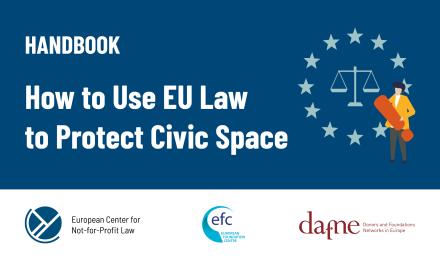Less than a month after the landmark ruling of the European Court of Justice sentencing that Hungary’s 2017 law on the transparency of organisations supported from abroad is in breach of EU law, another EU member state is attempting to restrict access to foreign funding for CSOs. On July 1, 2020 a group of MPs from the parliamentary group “United Patriots” (a partner in the ruling coalition) proposed restrictive amendments to the Bulgarian CSO law.
What are the key concerns?
Burdensome reporting obligation. The amendments would introduce an obligation for public benefit CSOs to report all income from foreign sources (foreign states, individuals or companies) above 500 EUR (1000 BGN). The information will be entered into a Register of nonprofit legal entities financed from abroad.
Increased scrutiny. The Minister of Finance will be able to request the Agency for State Financial Inspection to conduct financial audit of CSOs without any specific reason that may trigger such inspections other than the fact that a CSO has received more than 500 EUR from a foreign person or state.
Severity of sanctions. A violation of the legal requirement for reporting may lead to the removal of public benefit status or even termination of the CSO.
Asset declaration. Another restrictive proposal relates to the fact that the chairpersons and members of the CSO Boards that have received foreign funding are obliged to declare their assets to the Commission for Combatting Corruption and Confiscation of Illegally Acquired Property and their declarations will be made public. Currently, such requirement is applicable for people having high government positions e.g. Ministers, MPs and some other related individuals (mayors, managers of state-owned enterprises, etc.). There is no limitation in the amount of the foreign funding received that may subject CSOs to this obligation - so even the receipt of 1 EUR would be sufficient.
New attempt to stigmatize CSOs receiving funds from abroad
The proposal is yet another attack against CSOs and an attempt to stigmatize the organizations for receiving foreign funding. The first attempt to force CSO Board members to submit asset declarations took place in 2013 by a group of MPs from the RZS (Order, Law and Justice) Party. As a result of a large-scale criticism and push back from CSOs, the proposal did not go through. In 2017 and 2019 two attempts to limit foreign funding for associations of judges, prosecutors and other magistrates also proved to be unsuccessful, after having been heavily criticised by both CSOs and diplomats.
What does ECNL do?
ECNL has supported the Bulgarian Center for Not-for-Profit Law (BCNL) with the legal analysis and the preparation of arguments against the draft law. The opinion of BCNL (in Bulgarian) can be found here. We also collaborate with European CSO partners and institutions on actions: the Chairperson of the Conference of INGOs of the Council of Europe released a critical statement on July 9 calling on the Parliament not to go ahead with the amendments.
ECNL, in partnership with EFC and DAFNE, recently published a new handbook, intended to provide practical guidance for CSOs to advocate and litigate using EU law to protect their rights and civic space in the EU:
ECNL also informed the Office of the High Commissioner for Human Rights and the Special Rapporteur on the rights to freedom of peaceful assembly, which led to a letter from UN Special Rapporteurs and an Independent Expert to Bulgaria expressing concern about the proposed amendments.
Opposition against the draft
The proposed amendments were heavily criticised within the country, too. More than 300 Bulgarian CSOs prepared a joint statement against the proposed amendments. In addition a number of organizations submitted separate statements including the association of employers. In parallel, the Ombudsman and the Ministries of Finance and Justice also published statements that are not supporting the proposed amendments.
Bulgarian CSOs also sent a letter to Vera Jourova, Vice-President of the European Commission to draw her attention to the situation with the draft law. In her response, Vera Jourova noted that the EU is monitoring the draft and has included it in its 2020 Rule of Law Report on Bulgaria where it is stated that “the new draft rules on increased transparency of foreign funding for NGOs raise concerns”. Moreover, Vera Jourova has stated that the leader of the legislative majority had informed the EU that the draft would be withdrawn: this, however, has not happened as of 16 November 2020.
